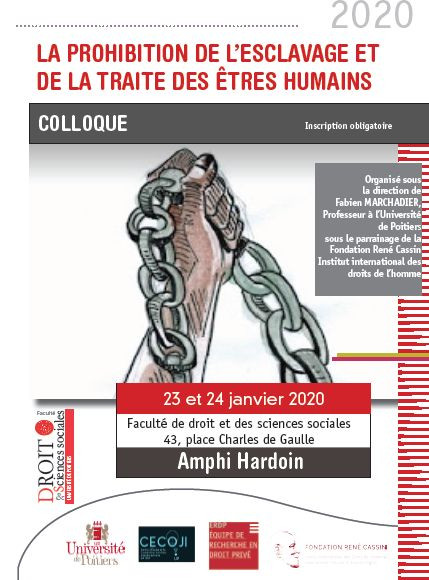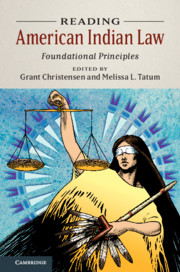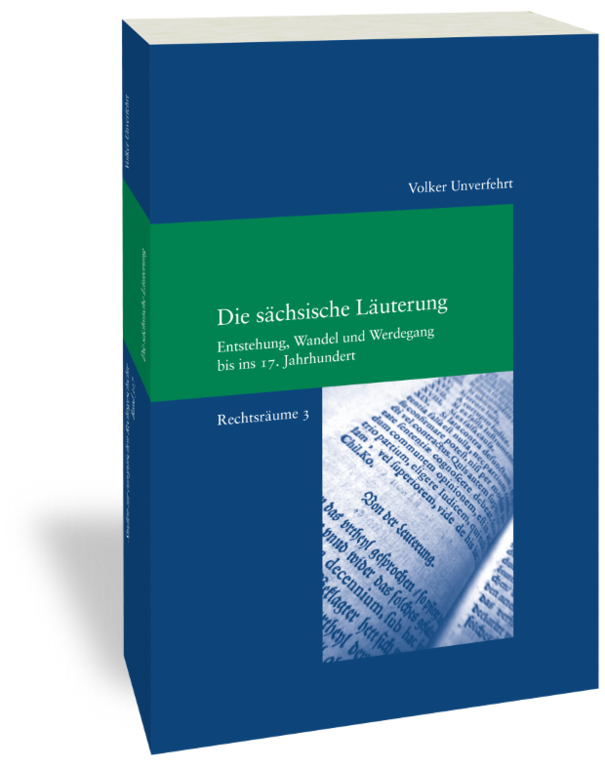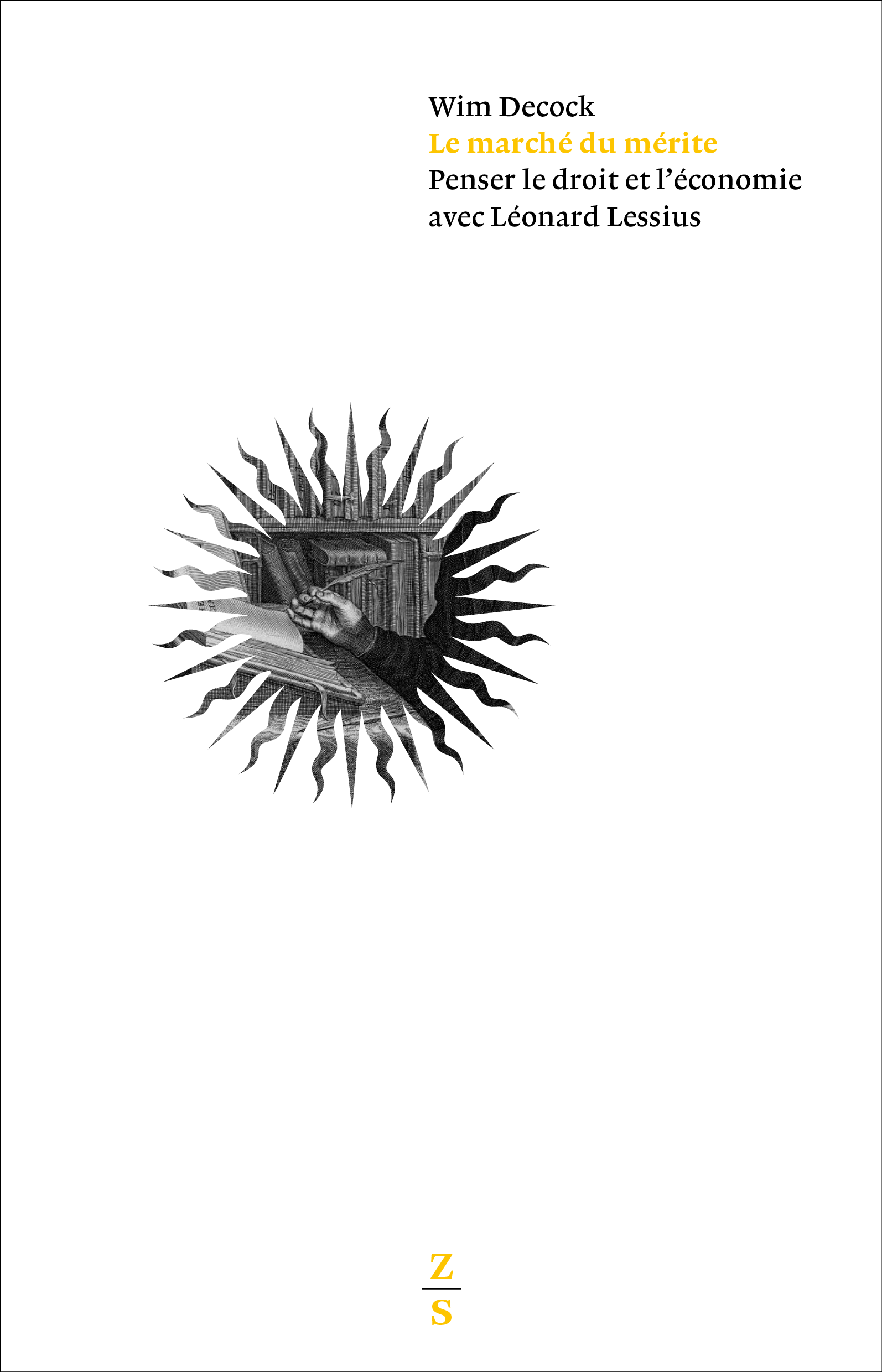Brill is publishing a book on the law of mandate in Byzantine
law.
ABOUT THE BOOK
In Ἐντολή (mandatum) in
den Basiliken Hylkje de Jong deals with the way the Byzantine jurists
of the early period (6th and early 7th century) and later period (11th and 12th
century) dealt with the law of mandate as they found this in respectively
Justinian’s compilation and in the 9th century Basilica. Commonly characterised
as consistent Byzantine dogmatics, the remarks of these Byzantine jurists
appear to be in reality individual approaches, coloured by each jurist’s own
methodology of interpreting.
Based upon the Basilica texts, the law of mandate is set out thematically: the
mandate’s object, the liability of parties, actions, remunerations. De Jong
proves convincingly that the Byzantine remarks provide a better understanding
of Justinian Roman law.
ABOUT THE AUTHOR
Hylkje de Jong, Ph.D.
(2008), is Assistant Professor in European Legal History at the VU University
Amsterdam. She received a Humboldt Scholarship in 2014 and a Visiting
Professorship in 2019 at the University of Vienna.
TABLE OF CONTENTS
Inhaltsverzeichnis
Vorwort
Inhaltsverzeichnis
Abkürzungsverzeichnis
1. Einleitung
1.1 Der Wert der Basilikenforschung
1.2 Die Wahl des Auftrags ἐντολή/( mandatum)
1.3 Forschungsstand
1.4 Zielsetzung
1.5 Methodik
1.6 Gang der Untersuchung
2. Das Material
2.1 Mandatum in der Anordnung des Corpus iuris
2.2 Ἐντολή in der
Basilikenanordnung
2.3 Die Überlieferung von Basiliken 14,1
2.3.1 Zwei Handschriften (Ca und P)
2.3.2 Analyse der Handschrift Codex Graecus Coislinianus 152
2.3.3 Analyse der Handschrift Codex Parisinus Graecus 1352
2.3.4 Ähnlichkeiten und Unterschiede der Handschriften
2.4 Vergleich zwischen dem Basilikentext (B. 14,1) und dem Digestentext (D.
17,1)
2.5 Der Aufbau des Scholienapparats zu B 14,1 (Ca)
3. Entstehung und Auflösung des Auftrags
3.1 Die mittelbare Stellvertretung
3.2 Die Bezeichnungen des Auftrags
3.2.1 Ἐντέλ¬λομαι und ἐντολή
3.2.2 Κελεύω und κέλευσις
3.2.3 Der Unterschied zwischen Auftrag (ἐντολή) und Ermächtigung (κέλευσις)
3.2.4 Das seltsame Verb: ἐπιτρέπω
3.2.5 Das spätbyzantinische Wort für Auftrag: προτροπή
3.3 Der Konsens des Auftrags
3.3.1 Die Mutter des byzantinischen Vertragsrechts
3.3.2 Änderung des Konsenses
3.3.3 Die Freiwilligkeit und die Unfreiwilligkeit
3.4 Die Formulierung des Auftrags
3.4.1 Irgendeine Äußerung
3.4.2 Das Nicken und das Dulden
3.5 Das Interesse
3.5.1 Fünf Sachverhalte
3.5.2 Auftrag ausschließlich deinetwegen I
3.5.3 Auftrag ausschließlich deinetwegen II
3.5.4 Die Empfehlung
3.6 Erlöschen auf Seite des Auftraggebers
3.6.1 Der Widerruf
3.6.2 Tod des Auftraggebers
3.7 Erlöschen auf Seite des Auftragnehmers
3.7.1 Die Ausführung
3.7.2 Die Kündigung
3.7.3 Tod des Auftragnehmers
3.8 Zusammenfassung
4. Der Gegenstand
4.1 Die Grenzen des Auftrags
4.2 Die allgemeinen Grenzen des Gegenstands
4.2.1 Änderung des Gegenstands
4.2.2 Verbotener Gegenstand
4.2.3 Der Ermessensspielraum des Auftragnehmers: die Wahl des Gegenstands
4.3 Die spezifischen Grenzen des Gegenstands: Stephanos über D. 17,1,48,2
4.3.1 D. 17,1,48,2 und ( mandatum incertum( in der
byzantinistischen Rechtsliteratur
4.3.2 Die ἀνὴρ ἀγαθός-Theorie: der Unterschied zwischen οἱοσδήποτε und ὃν βούλῃ
4.3.3 Juristische Interpretation: οἱῳδήποτε
4.3.4 Die Erweiterung des Gebrauchs der technischen Begriffe
4.4 Andere Rechtsgelehrte über D. 17,1,48,2
4.4.1 Enantiophanes’ juristische Interpretation: ὃν θέλεις
4.4.2 Anonymos’ sprachliche Interpretation: ὅδε oder ὅστις
4.4.3 Eines anonymen Autors sprachliche Interpretation: ὅ δεῖνα oder ὅστις
4.5 Gibt es im Recht der Basiliken ein mandatum incertum?
4.6 Zusammenfassung
5. Die Haftung
5.1 Dolus, Schuld und Sorgfalt
5.1.1 Die Begriffe
5.1.2 Der Inhalt von δόλος ( dolus)
5.1.3 Der Inhalt von ῥᾳθυμία und κούλπα
( culpa)
5.1.4 Der Inhalt von κακία ( culpa)
5.1.5 Der inhalt von ἐπιμέλεια ( diligentia)
5.2 Das Haftungssystem
5.2.1 C. 4,35,13 (B. 14,1,75)
5.2.2 Die byzantinistische Rechtsliteratur
5.2.3 Stephanos’ Verschuldenssystematik
5.2.4 Ἡ μεγάλη ἀμέλεια und ἡ ἄγαν ῥᾳθυμία als δόλος
5.2.5 Πλείων ἐπιμέλεια als ῥᾳθυμία
5.3 Andere Haftungsbegriffe: ἀπειρία ( imperitia), μόρα/ὑπέρθεσις ( mora)
und ἄγνοια ( ignorantia)
5.4 Τύχη ( casus)
5.5 Zusammenfassung
6. Die Klagen
6.1 Verpflichtungen der Parteien
6.2 Die Eigenschaften der Auftragsklage
6.2.1 Treu und Glauben
6.2.2 Der Inhalt der Auftragsklage
6.2.3 Die Konsequenz der Klage: Ehrlosigkeit
6.3 Weitere Klagen in B. 14,1 (D. 17,1) 6.3.1 Ἡ φούρτι (actio
furti)
6.3.2 Ἡ οὐτιλία (actio utilis)
6.3.3 Ἡ ἴμφακτος (actio in factum)
6.3.4 Ἡ οὐτιλία/ὡσανεὶ ἰνστιτουτορία (actio utilis/quasi institoria)
6.4 Die Klagen bei der Widerruf nach Reue
6.4.1 Der Text B. 14,1,27,1 (D. 17,1,27,1)
6.4.2 Ein anonymer Autor und Kyrillos: die actio mandati
6.4.3 Stephanos und Enantiophanes: die condictio causa data causa non
secuta
6.5 Formen der Forderungsabtretung
6.5.1 Notwendige oder gewillkürte Forderungsabtretung
6.5.2 Ἐκχώρησις
(cessio) bei eigentlichem Auftrag
6.5.3 Ἐκχώρησις
(cessio) bei Mandatbürgschaft
6.5.4 Ἐκχώρησις
(cessio) bei Prozeßvertretung
6.6 Wahlrecht des Gläubigers und Einschränkung in Novelle 4 (16. März
535)
6.7 Zusammenfassung
7. Erlaubte Vergütungen
7.1 Die Unentgeltlichkeit des Auftrags
7.2 Die Interpretation von D. 17,1,6pr. und 7
7.2.1 Matheeussens Unterscheidung zwischen διδόμενον σαλάριον und σαλάριον ὁρισθέν
7.2.2 Drei Argumente gegen Matheeussens Unterscheidung
7.2.3 Stephanos’ Unterschied: τό ἀντίδωρον und τό σαλάριον
7.2.4 Kein Unterschied: ὀνοράριον
7.3 Alte und neue Ausdrücke im spätbyzantinischen Recht
7.3.1 Das Vorkommen von ἀντί¬δωρον
7.3.2 Die Abwesenheit von σαλάριον
7.3.3 Andere Ausdrücke für σαλάριον: ὀψώνιον, σιτηρέσιον und δόμα
7.3.4 Der militärische Ursprung von ὀψώνιον, σιτηρέσιον und δόμα
7.4 Eine Ausnahme in B. 14,1,26,8 (D. 17,1,26,8)?
7.4.1 Der Text und das Problem
7.4.2 B. 14,1,26,8 in der byzantinistischen Rechtsliteratur
7.4.3 Frühbyzantinisches Recht: merces (μισθός) als „nützliche“ Ausgabe
7.4.4 Spätbyzantinisches Recht: μισθός als Lohn für μίσθωσις ( locatio conductio)
7.4.5 Spätbyzantinisches Recht: μισθός als „nützliche“ Ausgabe
7.5 Zusammenfassung
8. Die Sonderprobleme des Auftrags
8.1 Mischung der Themen
8.2 Prokuratorschaft
8.2.1 Prokuratorschaft in den Basiliken (B. 8,2 (D. 3,3 und C. 2,12))
8.2.2 Der Unterschied zwischen dem Prokurator und dem Auftragnehmer
8.3 Geschäftsführung ohne Auftrag
8.3.1 Geschäftsführung ohne Auftrag in den Basiliken (B. 17,1 (D. 3,5))
8.3.2 Das Erteilen der Auftragsklage und der Geschäftführungsklage
8.3.3 Der Kurator als Auftragnehmer und Geschäftsführer (B. 14,1,22,10)
8.4 Darlehen
8.4.1 Darlehen in den Basiliken (B. 23,1 (D. 12,1 und C. 4,2))
8.4.2 B. 14,1,6,6 (Darlehen) und B. 14,1,10,8 (Auftrag)
8.4.3 B. 14,1,34pr. ( mandatum irregulare) und B. 23,1,15 (D.
12,1,15 (Darlehen))
8.5 (Mandat)Bürgschaft
8.5.1 (Mandat)Bürgschaft in den Basiliken (B. 26,1 (D. 46,1 und C. 8,40))
8.5.2 Ὁ μανδάτωρ als Kreditauftraggeber
8.5.3 Bürgen in B. 14,1 (D. 17,1) und Bürgen in B. 26,1 (D. 46,1 und C.
8,40)
8.5.4 Verpflichtungen und Bezahlung des Bürgen
8.6 Freikauf des Sklaven
8.6.1 B. 14,1,87 (C. 4,36,1)
8.6.2 Andere Fälle
8.7 Zusammenfassung
9. Charakterisierung von B. 14,1
9.1 Einleitung
9.2 Byzantinisches Recht nach Rechtshistorikern
9.2.1 Forschungsziele der Wissenschaft vom römischen Recht
9.2.2 Rekonstruktion des klassischen römischen Rechts: Albertario
9.2.3 Ableh¬nung der Interpolationenkritik: Kaser
9.2.4 Interpretation dogmatische Lehren und Figuren: Nörr und MacCormack
9.3 Charakter der Antezessorentexte
9.3.1 Die Schulpraxis
9.3.2 Konkretisierung der Begriffe
9.3.3 Dogmatisierung der Konzepte
9.3.4 Systematisierung der Ansätze
9.4 Die Profile der byzantinischen Juristen
9.4.1 Das Fehlen einer einheitlichen byzantinischen Lehre
9.4.2 Kyrillos
9.4.3 Theophilos
9.4.4 Stephanos
9.4.5 Anonymos
9.4.6 Enantiophanes/Enantios
9.4.7 Nomophylax
Appendix
Literaturverzeichnis
Sachregister
Quellenverzeichnis















